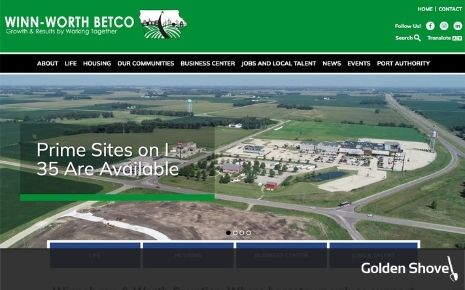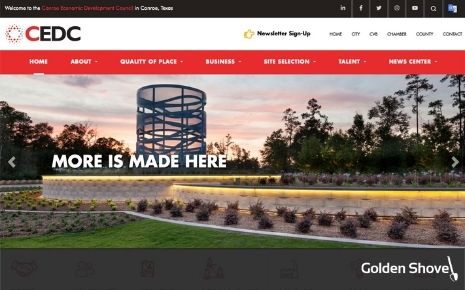Why Would My Community Want to Attract a Remote Workforce

25 Jan 2021
News, Marketing, Workforce
Why would my community want to attract a remote workforce? To grow your economy, of course! The coronavirus pandemic has affected U.S. workplaces in many ways, including transitioning many employees to remote work. As some businesses begin to welcome employees back to the office, many remote workers, about two-thirds to be exact, are opting to continue working remotely, according to a Gallup Poll. Attracting remote workers should now be a priority for all economic developers.
Why Attract a Remote Workforce?
Remote workers can bring many benefits to the communities they choose to live in. Just like any other resident, remote workers spend money on housing, food, entertainment, and other local goods and services, but the benefits don't stop here.
Remote Workers Grow the Tax Base
Remote workers file their personal income taxes to their state of residence. In addition to benefiting their state of residence, remote workers pay real estate taxes, property taxes, and personal property taxes. All of these add up to grow the tax base of the state and city in which a remote worker lives.
As a result of bringing more remote workers to the community, more of the costs associated with running the community are shared. As the tax base grows, the individual's share of the tax burden shrinks.
Remote Workers Bring Their Significant Other With Them
The majority of remote workers are young professionals with young families. These workers will be bringing a spouse with them who would presumably be looking for work in the community. This significant other could fill a position in a local business, even further boosting the local economy and building the workforce there. Their children will attend local schools, bringing an additional benefit to the school system.
Remote Workers Create Other Stable Jobs
Bringing more remote workers to the community may increase the potential for more stable, year-round job opportunities for others. The majority of the remote workforce is made up of Millennials. Millennials bring spending power with them.
According to the Food Institute's analysis of the United States Department of Agriculture's food expenditure data, Millennials spend 44% of their food dollars on eating out. About half of the Millennials are also more willing to pay more money to support small businesses than Gen Xers and Baby Boomers. These spending habits benefit the local economy and increase the need for local restaurants, coffee shops, and boutiques to meet the demand.
The Potential for Remote Workers May Already Be There
In addition to attracting remote workers from across the country, it's important to also focus on the residents who are already there. some workers in the community may be considering taking their work remotely, but they are unsure of what the community has to offer remote workers. Economic developers should model the tools and the support they can give to both potential remote workers who already live there as well as to those considering a move to the area.
Remote Workers Are Your Secret Weapon
Not only do remote workers stimulate the local economy, but they preserve and improve existing neighborhoods, support city parks and recreation development, and diversify labor pools and local politics. These qualities add up to a prosperous community.
We can help you answer the question, "Why would my community want to attract a remote workforce?" Contact us today to learn more about what remote workers can contribute to your community.
Download "Rethinking Workforce Attraction in the Age of Remote Work"
More Topics






